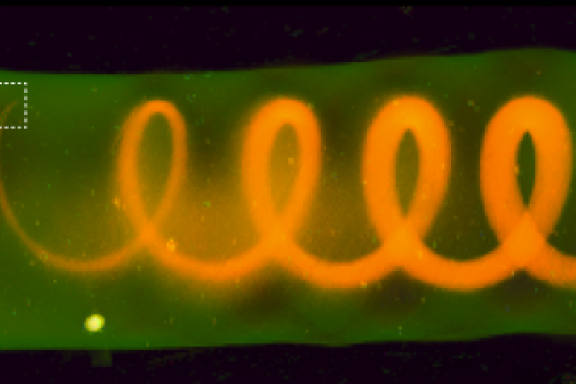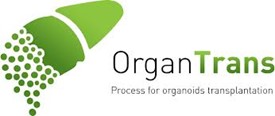
Collaborations through the Biofabrication Facility, since its establishment in 2013, have resulted in a number of large national and international collaborative projects. In these projects, we are using 3D (bio)printing technology and living cells to create functional tissues for transplantation and for use as miniaturized models of health and disease, including those focussing on the regeneration of renal, cardiac, hepatic and pancreatic tissues and the innovative approaches in combining printing technologies and reinforcing living 3D tissue structures have gained widespread adoption in the field.
The team has been honored with international recognition, demonstrated by the receipt of numerous collaborative grants from esteemed organizations like the Dutch Arthritis Foundation, NWO, EU, and NIH, as well as the prestigious awards and prizes. If you wish to learn more about some of our projects, we encourage you to explore the provided links:
 The MEniscal FunctIonalised Scaffold To prevent knee Osteoarthritis onset after meniscectomy (MEFISTO) project develops novel ways using bioactive functionalised materials and 3D(bio-) printing to treat meniscus loss and prevent the onset of osteoarthritis.
The MEniscal FunctIonalised Scaffold To prevent knee Osteoarthritis onset after meniscectomy (MEFISTO) project develops novel ways using bioactive functionalised materials and 3D(bio-) printing to treat meniscus loss and prevent the onset of osteoarthritis.
 The BRAVE project aims to develop a regenerative treatment for ischemic heart disease: an innovative biological ventricular assist device (BioVAD). It is a scaffold that is disposed over the injured area and helps the cardiac cells to make the contraction force needed for an adequate pumping. BRAVE will develop a tailored structure that will be seeded with human induced pluripotent stem cells (hiPSCs).
The BRAVE project aims to develop a regenerative treatment for ischemic heart disease: an innovative biological ventricular assist device (BioVAD). It is a scaffold that is disposed over the injured area and helps the cardiac cells to make the contraction force needed for an adequate pumping. BRAVE will develop a tailored structure that will be seeded with human induced pluripotent stem cells (hiPSCs).
 LS-CarE stands for: Large-Scale Neo-Cartilage Engineering: regenerative technologies for osteoarthritis. The goal of our program is to create a living cartilage implant that is large enough to replace the cartilage in the entire joint, thus creating a lifelong solution. LS-CarE is a research program funded by the Dutch Research Council (NWO), with an amount of 3.2 million euros.
LS-CarE stands for: Large-Scale Neo-Cartilage Engineering: regenerative technologies for osteoarthritis. The goal of our program is to create a living cartilage implant that is large enough to replace the cartilage in the entire joint, thus creating a lifelong solution. LS-CarE is a research program funded by the Dutch Research Council (NWO), with an amount of 3.2 million euros.
 The goal of this research is to enhance the reliability and accuracy of testing new diabetes therapies. In the long term, the team hopes their work could pave the way for lab-grown organs suitable for human transplants. The project represents a significant step forward in both diabetes treatment and regenerative medicine. This project has received funding from the European Union’s Horizon 2020 research and innovation program.
The goal of this research is to enhance the reliability and accuracy of testing new diabetes therapies. In the long term, the team hopes their work could pave the way for lab-grown organs suitable for human transplants. The project represents a significant step forward in both diabetes treatment and regenerative medicine. This project has received funding from the European Union’s Horizon 2020 research and innovation program.
 ORGANTRANS is developing a liver tissue printing platform that will be shortly deployed under the “compassionate use exemption” by three leading European transplant centers belonging to the consortium or the External Advisory Board. ORGANTRANS will not only deliver an ATMP, but also platform technologies that can be scaled to other organ systems, as organoid technology is one of the largest parts of regenerative medicine. The project covers the entire value chain (from cell source, tissue engineering, bioprinting, post-processing to testing) allowing for early adoption of its results (product & process) in clinical practice. The platform will first be scaled to Europe and then to the rest of the world.
ORGANTRANS is developing a liver tissue printing platform that will be shortly deployed under the “compassionate use exemption” by three leading European transplant centers belonging to the consortium or the External Advisory Board. ORGANTRANS will not only deliver an ATMP, but also platform technologies that can be scaled to other organ systems, as organoid technology is one of the largest parts of regenerative medicine. The project covers the entire value chain (from cell source, tissue engineering, bioprinting, post-processing to testing) allowing for early adoption of its results (product & process) in clinical practice. The platform will first be scaled to Europe and then to the rest of the world.
 Realistic, lab-made tissues are essential to feed and keep a growing and aging world population healthy without harming the planet. However, current production methods are still too slow and expensive, and do not always deliver the desired properties. FAB4FUTURE combines artificial intelligence with knowledge and methods from medicine and food production in a ‘toolbox’ for the scalable and configurable production of living materials. The researchers are demonstrating their methods in three-dimensional heart models for cardiovascular disease research and in cultured meat with the same taste, texture and nutritional value as real meat.
Realistic, lab-made tissues are essential to feed and keep a growing and aging world population healthy without harming the planet. However, current production methods are still too slow and expensive, and do not always deliver the desired properties. FAB4FUTURE combines artificial intelligence with knowledge and methods from medicine and food production in a ‘toolbox’ for the scalable and configurable production of living materials. The researchers are demonstrating their methods in three-dimensional heart models for cardiovascular disease research and in cultured meat with the same taste, texture and nutritional value as real meat.
 Organ-on-Chip (OoC) is a game-changing approach in which human cells are cultured in microfluidic chips simulating and predicting the response of healthy and diseased human tissues. OoC has the potential to revolutionize today’s biomedical testing procedures that often involve ethically challenged animal testing and, most importantly, lead to variable results. Despite its promise, OoC adoption is hampered by profound technical and functional limitations. In this multidisciplinary program, engineers and biomedical researchers join forces with 25 end users to overcome these limitations by developing a novel, Standardized, open and Modular OoC Approach to Recapitulate Tissues (“SMART OoC”).
Organ-on-Chip (OoC) is a game-changing approach in which human cells are cultured in microfluidic chips simulating and predicting the response of healthy and diseased human tissues. OoC has the potential to revolutionize today’s biomedical testing procedures that often involve ethically challenged animal testing and, most importantly, lead to variable results. Despite its promise, OoC adoption is hampered by profound technical and functional limitations. In this multidisciplinary program, engineers and biomedical researchers join forces with 25 end users to overcome these limitations by developing a novel, Standardized, open and Modular OoC Approach to Recapitulate Tissues (“SMART OoC”).